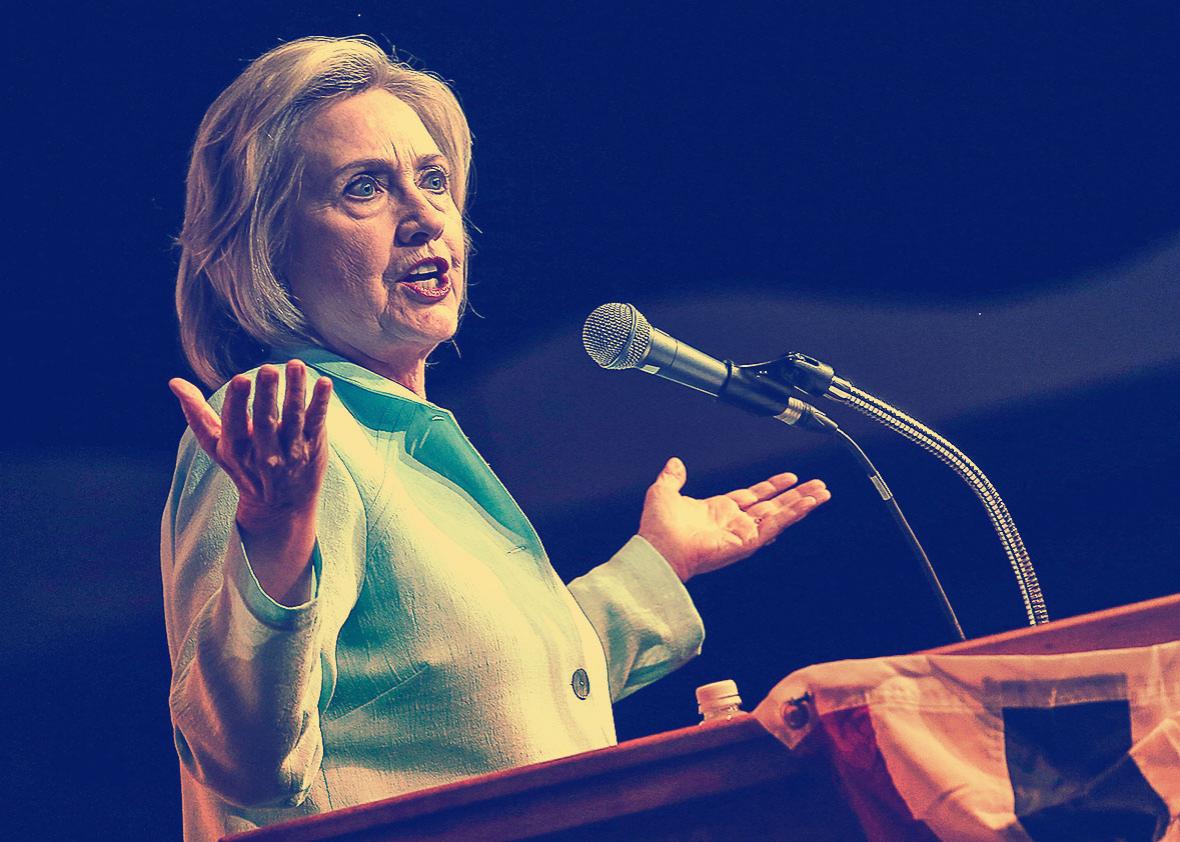Late last month, at the summer meeting of the Democratic National Committee, Martin O’Malley demanded more debates. “Four debates and only four debates—we are told, not asked—before voters in our earliest states make their decisions,” said the presidential candidate and former Maryland governor. “This sort of rigged process has never been attempted before,” he added. “One debate in Iowa. That’s it. One debate in New Hampshire. That’s all we can afford.”
It’s no surprise O’Malley wants more debates; despite solid credentials and a competitive record, he’s virtually invisible in the Democratic primary, far behind Hillary Clinton, Bernie Sanders, and even one possible candidate who hasn’t declared yet in Vice President Biden. (He’s ahead of Republican-turned-independent-turned-Democrat Lincoln Chafee, though.) More debates would give him a platform and a chance to appeal beyond the narrow slice of Democratic voters who reject Hillary but don’t want Sanders.
Clinton says she’s open to more debates—“I debated a lot in 2008, and I would certainly be there with lots of enthusiasm and energy if they decide to add more debates”—and Sanders, like O’Malley, is thrilled at the possibility of a larger set of debate stages. “I think this country benefits, all people benefit, democracy benefits, when we have debates, and I want to see more of them,” he told CNN. “I think that debates are a good thing.”
But additional debates can do more than help candidates and broaden the audience for the party’s message; they can finally give the media something to talk about other than Hillary’s ongoing woes. Far from a distraction or risk, more debates might be the only thing Democrats can do to shift attention from Clinton and her assorted problems, from email to falling poll numbers.
It’s worth asking why we don’t have more debates, if every candidate wants them. The answer is straightforward: DNC Chairwoman Debbie Wasserman Schultz is fully opposed to more debates, perhaps in an effort—as O’Malley suggests—to shield Clinton from further criticism. “We’re not changing the process. We’re having six debates,” she said on Thursday, before issuing a threat to anyone who tries to circumvent the party. “The candidates will be uninvited from subsequent debates if they accept an invitation to anything outside of the six sanctioned debates.” Not all DNC leaders agree. In a Facebook post on Wednesday, vice chairs Tulsi Gabbard and R.T. Rybak argued the case for more debates. “We believe that the DNC’s decision to limit Presidential candidates to six debates, with a threat of exclusion for any candidate who participates in any non-DNC sanctioned debate, is a mistake,” they wrote. “It limits the ability of the American people to benefit from a strong, transparent, vigorous debate between our Presidential candidates, as they make the important decision of who will be our Democratic Presidential nominee.”
There’s no sign Wasserman Schultz will budge. But if Wasserman Schultz is seriously interested in improving the party and boosting its candidates, including Hillary Clinton, she might want to reconsider.
Right now Clinton coverage is consumed by the email scandal. Everything from her policy proposals to her overall lead in the Democratic primary is overshadowed by the drip of news around her email use as secretary of state. Even though there’s no evidence of criminal behavior—specifically, no indication Clinton passed classified documents or deliberately sent classified information through her private email system—the story won’t go away because it feeds into her pre-existing image as being scandal-prone. Also, never mind that Hillary’s offense has more to do with the action than the venue; sending classified materials via official state.gov email is just as illegal as sending it through an unofficial channel, and just as vulnerable to outside interference. (See the massive Russian hack of the State Department’s email system). There are legitimate criticisms of Clinton’s decision and important questions about her commitment to official transparency. Those aside, however, it’s not clear that there’s an actual “scandal” in this email controversy. Still, the scrutiny is real, has had a negative effect on Clinton’s standing, and will continue to until she and the party can change the subject.
Debates won’t make Clinton popular; they may even harm her in the primary and elevate her opponents. But by enhancing the horserace, they’ll change the subject from Clinton’s problems, giving the press a different topic of conversation. More broadly, they’ll highlight the substance of the Democratic primary; if the GOP is consumed with Donald Trump and his dominance of the Republican field, the Democratic Party is genuinely considering an array of policy questions, from the expansion of the welfare state to criminal justice reform, immigration, and voting rights. If anything, more debates give Democrats a greater chance to contrast themselves with the GOP and its chaotic primary process. Even if it comes with risks, it’s a win for everyone.
